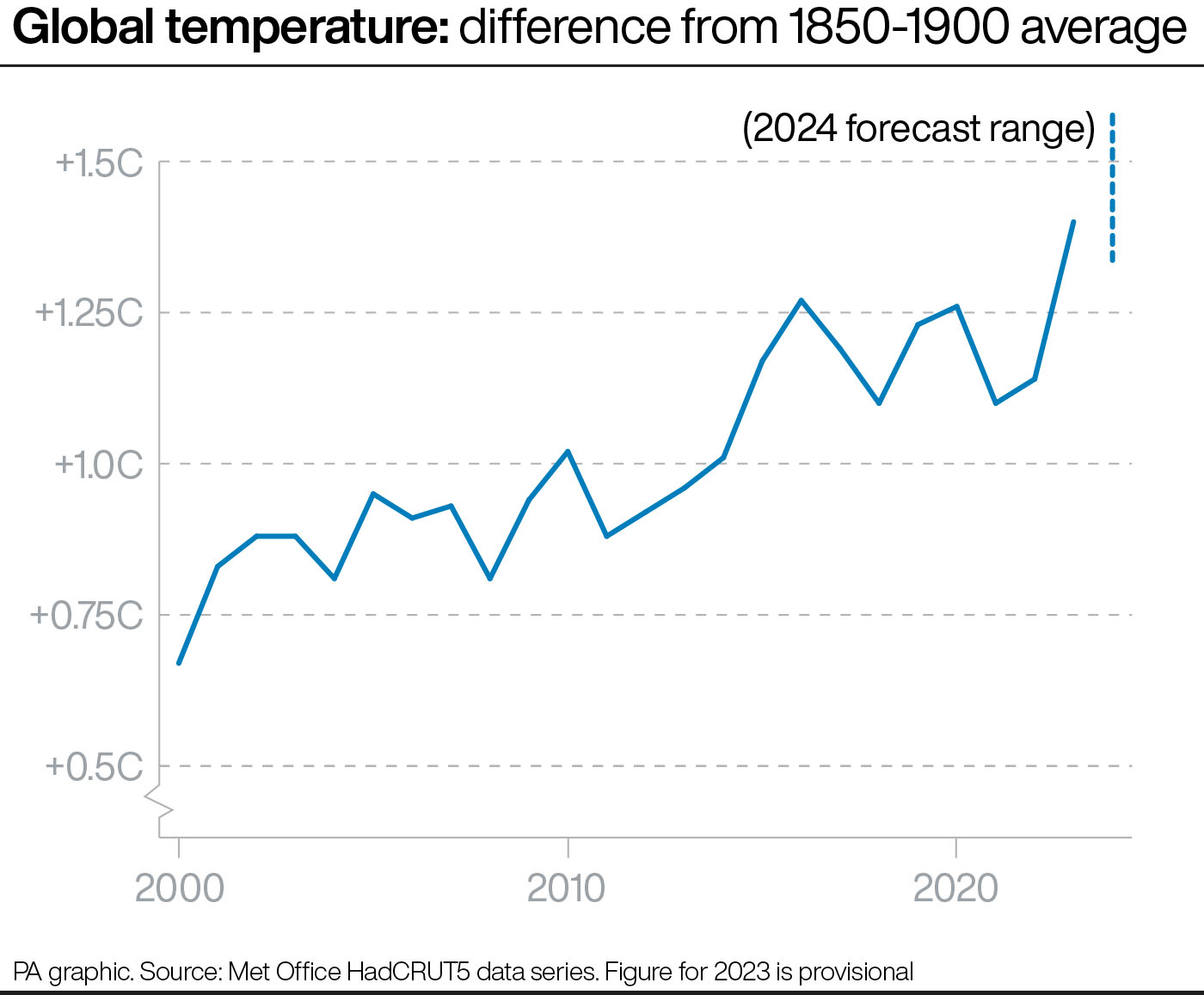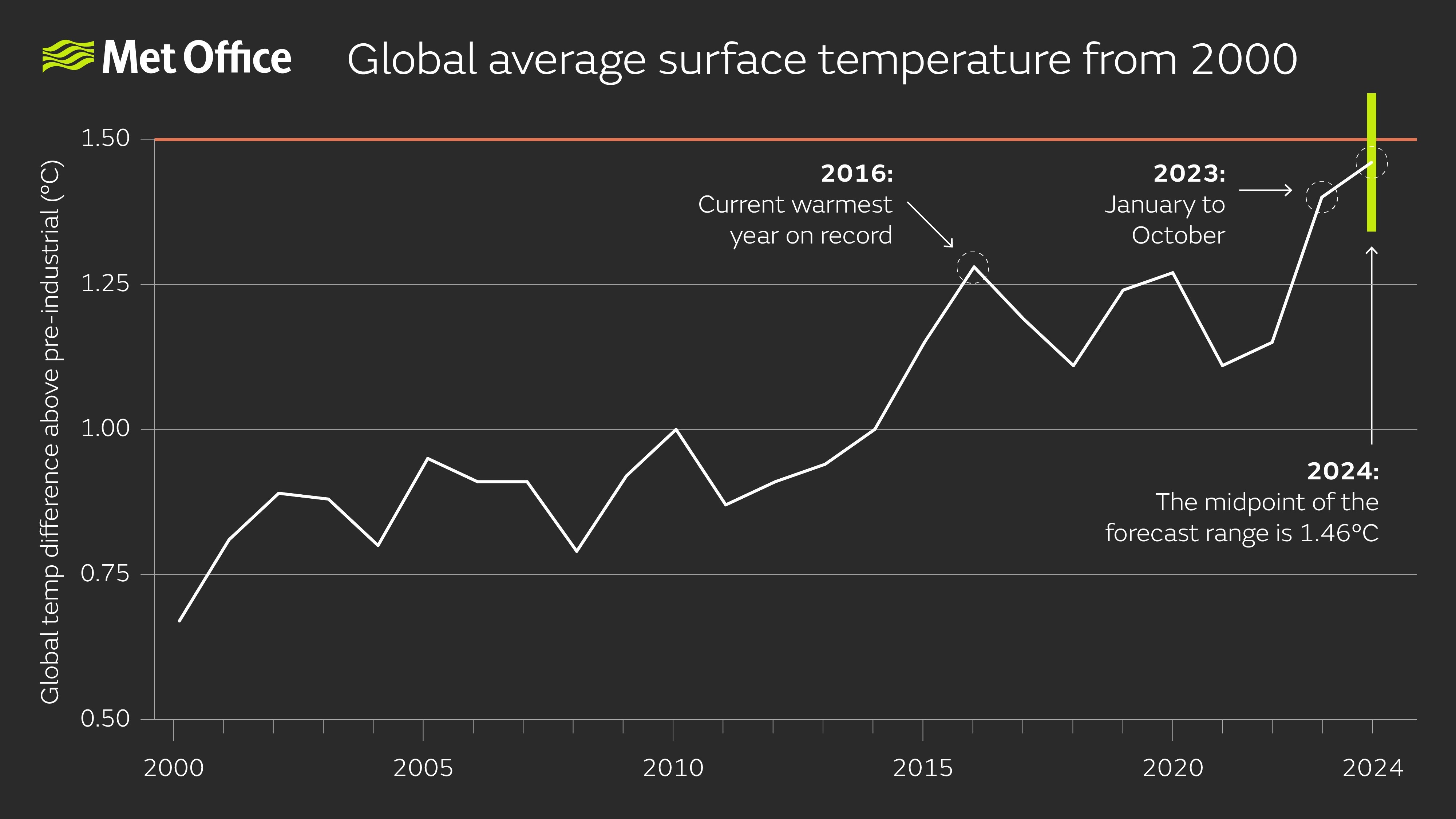Danny Halbin, PA Environmental Reporter
08 December, 2023 01:17
Average global temperatures next year could rise by more than 1.5C above pre-industrial levels for the first time in modern history, according to Met Office forecasts.
Limiting warming to 1.5C is the main goal of the Paris Agreement, but as it is measured over a period of about 20 years, exceeding 1.5C per year does not mean that the target has been missed.

Temperatures are changing naturally and the annual average will drop back below 1.5C immediately after 2024.
It’s a significant milestone, however, as it highlights how greenhouse gas emissions are warming the Earth toward levels never before experienced by humans.
The Met Office believes 2024 will end with an average temperature between 1.34C and 1.58C lower than the period between 1850-1900 – the 11th year in a row the temperature will exceed 1C.
Forecasters are tipping this year to end with an average of 1.2C above pre-industrial levels, and it will almost certainly be the warmest year, surpassing 2020 and 2016.
El Niño, a naturally occurring phenomenon that warms the tropical eastern Pacific Ocean, is adding more heat to the atmosphere this year and is set to continue into spring 2024, temporarily raising average global temperatures.
The Met Office’s Dr Nick Dunstone said: “This forecast is in line with the current global warming trend of 0.2C per decade and is boosted by a significant El Niño event.
„Therefore, we expect two new global temperature record-breaking years, and for the first time, we predict a reasonable chance that a year will temporarily exceed 1.5C.
„It is important to recognize that a temporary breach of 1.5C will not necessarily mean a breach of the Paris Agreement. But the first year above 1.5C will certainly be a milestone in climate history.

Countries agreed in 2015 to limit global temperatures from rising beyond 1.5C, as the climate begins to become dangerously unstable.
Melting of polar and mountain glaciers could become irreversible and trigger further warming, even if human emissions are brought under control.
A warming ocean could also destroy the world’s coral reefs, which form the basis of many ecosystems and the livelihoods of millions of people.
The Met Office’s Professor Adam Scaife said: „Human-induced warming has been the main driver of record-breaking temperatures since the start of the Industrial Revolution.
“With one month to go, 2023 is almost certain to be the warmest year on record, surpassing the current record set in 2016, boosted by an El Niño event.
„In addition to the El Niño event, we have unusually high temperatures in the North Atlantic and Southern Ocean, and together with climate change, these factors are responsible for new global temperature extremes.”

. „Gracz. Namiętny pionier w mediach społecznościowych. Wielokrotnie nagradzany miłośnik muzyki. Rozrabiacz”.
